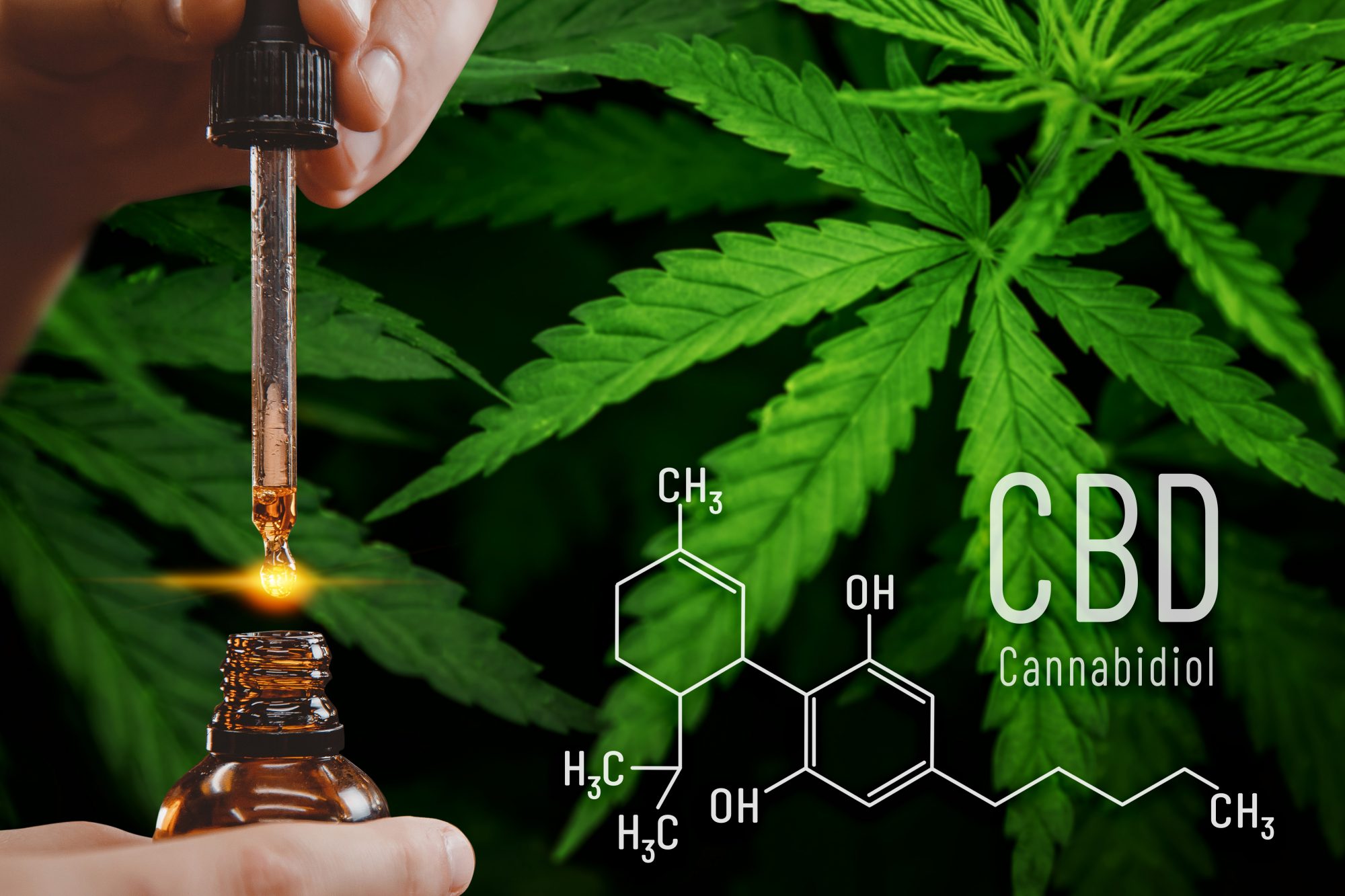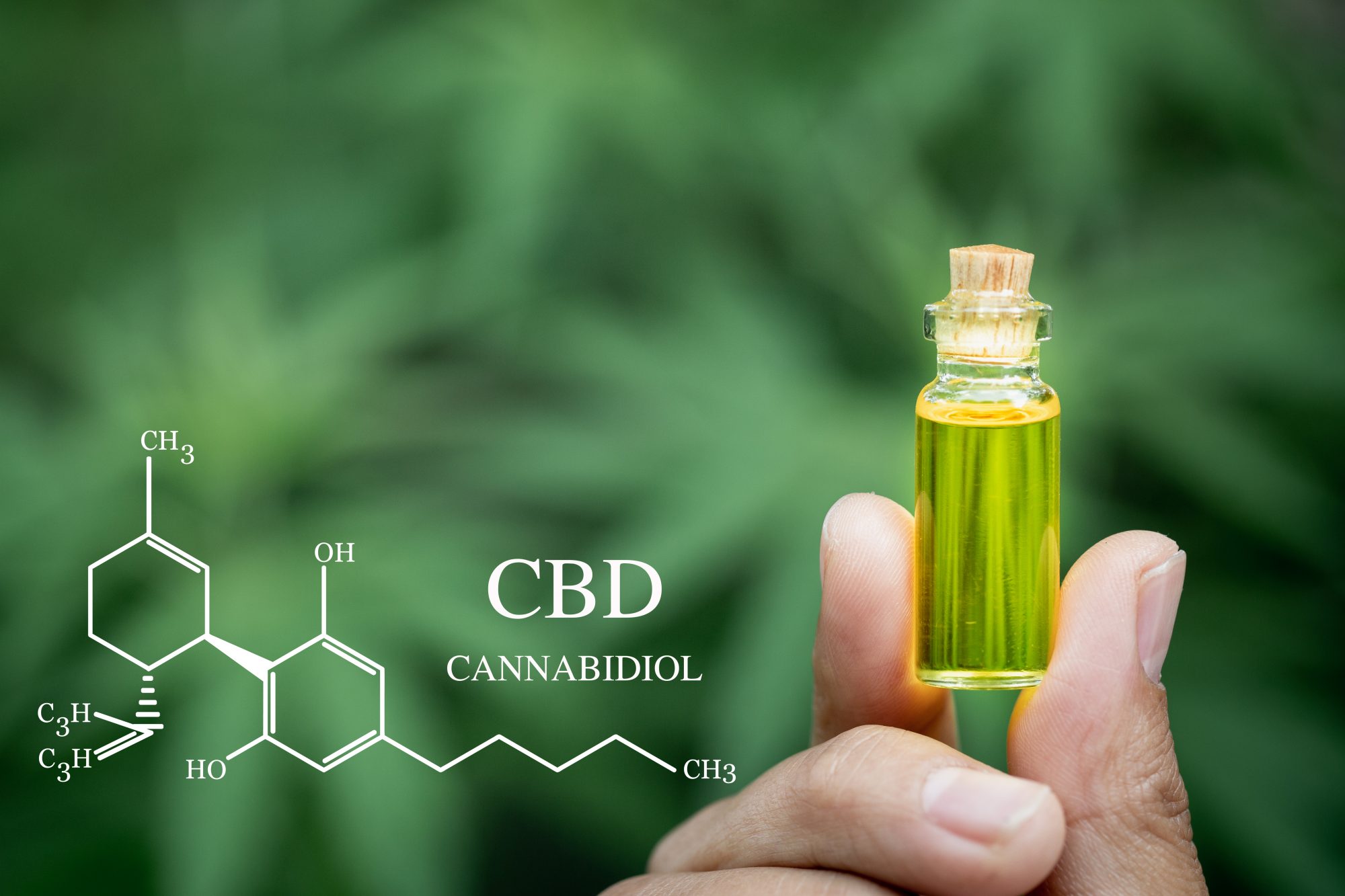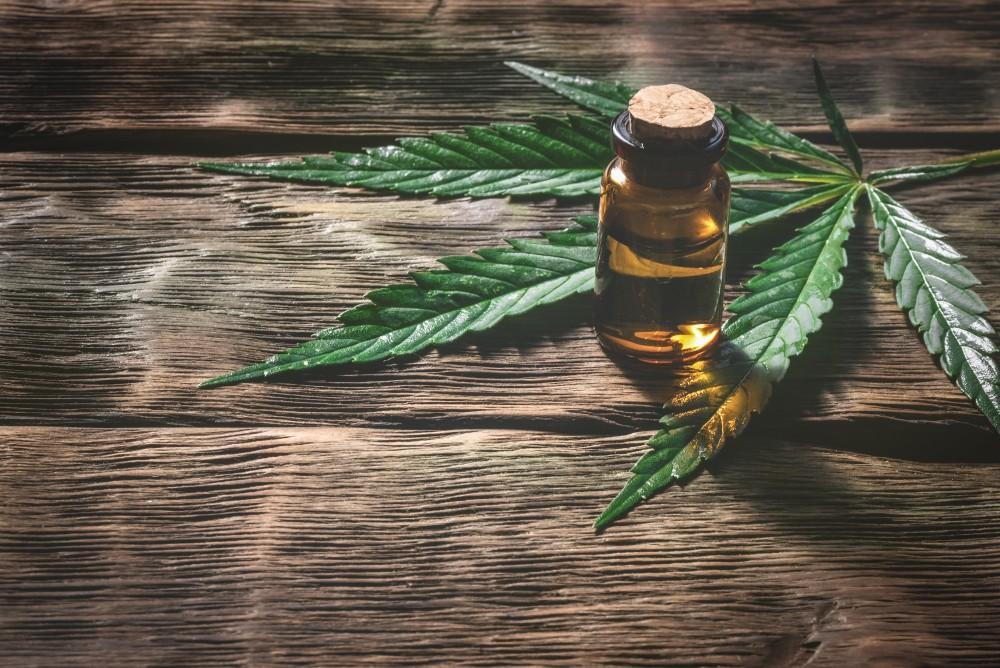CBD For ALS - What Is It & How To Use
Cannabidiol (CBD) has emerged as a promising avenue of exploration for individuals living with Amyotrophic Lateral Sclerosis (ALS). CBD for ALS represents a potentially transformative approach to managing the symptoms of this devastating neurodegenerative disease.
Author:Suleman ShahReviewer:Han JuNov 23, 2023244 Shares121.8K Views

CBD for ALS, also known as Amyotrophic Lateral Sclerosis, has emerged as a topic of great interest and hope in the field of medical research. ALS, a progressive neurodegenerative disease, poses significant challenges to those diagnosed with it. However, CBD, short for cannabidiol, is gaining recognition for its potential therapeutic benefits in managing ALS symptoms. This natural compound, derived from the cannabis plant, holds promise in alleviating muscle stiffness and spasms, which are hallmark characteristics of ALS.
In recent years, there has been growing interest in the use of cannabidiol (CBD) as a potential treatment for ALS. This article will delve into the world of CBD and its potential benefits for ALS patients, exploring the current research, possible mechanisms of action, and practical considerations for those considering this alternative therapy.
Understanding ALS
A deadly motor neuron disease, ALS is ultimately fatal. The gradual death of brain and spinal cord nerve cells characterizes the disease. ALS causes difficulty breathing and a loss of voluntary control over the limbs. ALS does not impact intellect, thinking, sight, or hearing.
What Are The Symptoms Of ALS?
Weakness in a limb is often the initial symptom of amyotrophic lateral sclerosis (ALS), and it may appear suddenly or over weeks or months. Then, from weeks to months later, weakness occurs in another leg. Slurred speech or difficulty swallowing might be the first signs of a problem.
However, as ALS advances, more and more symptoms become apparent. These are the most typical manifestations of ALS.
- Tenseness and spasms in the muscles, most noticeably the hands and feet.
- Deterioration of Hand and Arm Motor Function.
- Disability in moving the limbs.
- Falling due to tripping.
- Mishandling objects.
- Crying and laughing fits that won't stop.
- Poor voice projection, slurred or thick speech.
Signs Of The Disease's Advancement Include
- Difficulty with breathing
- Inability to swallow
- Paralysis
What Are The Complications Of ALS?
ALS is now incurable. The condition will gradually worsen over 3 - 5 years, eventually rendering voluntary movement of arms and legs impossible. Over time, you'll need assistance with things like eating, dressing, and moving about. The inability to move the diaphragm effectively hinders respiration. A ventilator may be necessary for you to breathe. Most persons with ALS die from respiratory failure.
How Is ALS Treated?
Symptom management, which may include physical, occupational, speech, respiratory, and nutritional treatments, may be the primary treatment for most persons with ALS. Muscle cramps may sometimes be alleviated with the use of medication, heat, or a whirlpool. Moderate exercise could keep muscles strong and working well.
Currently, ALS has no known effective treatments or a cure. Riluzole, on the other hand, was given the go-light by the FDA. For the first time, this medication has increased the average lifespan of ALS patients.
You, your caregivers, and your medical team will face many challenges as you work together to manage the symptoms of ALS. The good newsis that there are numerous places to turn to for help and support in your local community.
Studies are being conducted to learn more about the genes that could be involved in ALS, the processes that might lead to motor neuron degeneration and the methods that can be used to halt this progression.
Living With ALS
You and your family will work closely with your healthcare provider to manage symptoms as they progress. Using the medication may extend your lifeby a few months, especially if you have trouble swallowing. Talk to your doctor about making your home more accessible for you and your loved ones and about mobility aids like wheelchairs.
Key Points About ALS
- A deadly motor neuron disease, ALS is ultimately fatal. The gradual death of brain and spinal cord nerve cells characterizes the disease.
- ALS causes difficulty breathing and a loss of voluntary control over the limbs.
- ALS does not impact intellect, thinking, sight, or hearing.
- ALS is now incurable.
- Symptom management and relief are the primary goals of ALS treatment.
The Role Of CBD
Neuroinflammation plays a pivotal role in the progression of neurodegenerative diseases, including ALS.
Recent research suggests that cannabidiol (CBD) may aid in both getting to sleep and staying asleep. This is a constant ache in my bones. Further human trials are required to confirm claims that cannabidiol (CBD) helps manage pain. According to the results of animal research published in the European Journal of Pain, topical use of CBD may help reduce arthritis-related pain and inflammation.
Understanding Neuroinflammation In ALS
ALS is characterized by chronic neuroinflammation, which contributes to the degeneration of motor neurons. This inflammatory response involves the activation of microglia and astrocytes, leading to the release of pro-inflammatory cytokines and other immune mediators. This chronic inflammation in the central nervous system contributes to the damage observed in ALS and exacerbates the symptoms.
CBD As An Anti-Inflammatory Agent
The potent anti-inflammatory effects of CBD have attracted widespread attention. It has a significant impact on inflammation regulation by interacting with the body's endogenous cannabinoid system. CBD may inhibit pro-inflammatory cytokine production by altering the endocannabinoid system and lowering microglial and astrocyte activity.
CBD has been proven to reduce the production of inflammatory cytokines such as tumor necrosis factor-alpha (TNF-), interleukin-1 beta (IL-1), and interleukin-6 (IL-6), according to many studies using animal models and cell cultures. Patients with ALS have been shown to have increased levels of these cytokines in their spinal cords and brains, where they contribute to the neuroinflammatory response.
Neuroprotection Through Inflammation Reduction
Reducing neuroinflammation is not only about alleviating symptoms but also about potentially protecting motor neurons from further damage. By decreasing the chronic inflammatory response, CBD may help preserve motor neurons, thereby slowing the progression of the disease.
Animal studies have shown that CBD's anti-inflammatory properties can lead to improved motor function and extended survival in ALS models. While these findings are promising, it's crucial to remember that translating results from animal studies to human treatments can be complex.
Clinical Implications And Future Research
Exciting new research is being done on the possible role of CBD in moderating neuroinflammation in ALS. However, at this time, research trials using CBD for ALS patients are still in their infancy. The safety and effectiveness of CBD in the setting of ALS, as well as the optimum doses and treatment regimens, need large-scale, well-controlled clinical studies.
Patients and doctors alike should use caution when contemplating CBD as part of an ALS therapy regimen. It's best to get counsel from doctors who can tailor their recommendations to the individual patient.
CBD And Neurodegenerative Diseases
Neurodegenerative diseases are a group of disorders characterized by the progressive degeneration of the structure and function of the nervous system. These diseases, including ALS, Alzheimer's, Parkinson's, and Huntington's, pose significant challenges to patients and healthcare providers.
In recent years, there has been growing interest in the potential therapeutic role of CBD in addressing the common underlying mechanisms of neurodegeneration.
CBD As A Multifaceted Neuroprotective Agent
CBD's potential therapeutic effects in neurodegenerative diseases stem from its multifaceted nature. It interacts with the endocannabinoid system, which plays a crucial role in regulating various physiological processes, including those implicated in neurodegeneration.
CBD's Anti-inflammatory Properties
Neuroinflammation is a prominent feature in many neurodegenerative diseases, contributing to the loss of neurons. CBD's anti-inflammatory properties can modulate the activation of microglia and astrocytes, which are immune cells in the brain responsible for initiating and sustaining inflammation. By reducing the release of pro-inflammatory cytokines, CBD may help mitigate neuroinflammation, thereby protecting neurons.
Antioxidant Effects
Oxidative stress, caused by an imbalance between the production of reactive oxygen species (ROS) and the body's ability to detoxify them, is a common thread in neurodegeneration. CBD acts as an antioxidant, neutralizing harmful ROS and promoting the activity of endogenous antioxidant enzymes, such as superoxide dismutase. This can help mitigate oxidative damage to neurons and other cells in the central nervous system.
Autophagy And Protein Misfolding
Impaired autophagy, the process by which cells remove damaged components and proteins, is a common feature in neurodegenerative diseases. CBD has been investigated for its potential role in enhancing autophagy, which could help clear protein aggregates and damaged cellular structures. This, in turn, may contribute to the preservation of neuronal health.
CBD And ALS - The Current State Of Research
Amyotrophic lateral sclerosis (ALS), also known as Lou Gehrig's disease, is a devastating neurodegenerative disorder with no known cure. Patients diagnosed with ALS often face a rapidly progressing decline in motor function, making it crucial to explore potential therapies that could slow the disease's progression or alleviate its symptoms. In recent years, there has been growing interest in the potential therapeutic role of cannabidiol (CBD) in ALS treatment.
The Rise Of CBD As A Potential ALS Treatment
Cannabidiol (CBD) has garnered attention for its potential therapeutic properties, including its anti-inflammatory, neuroprotective, and analgesic effects. These properties make CBD an intriguing candidate for ALS treatment. Researchers have been exploring how CBD could affect the course of the disease and improve the quality of life for ALS patients.
Preclinical Studies
Preclinical studies, often conducted in animal models, have provided valuable insights into the potential benefits of CBD in ALS. These studies have shown that CBD may extend the survival of ALS mice and delay the onset of symptoms. The proposed mechanisms of action include the reduction of neuroinflammation and oxidative stress, both of which play a significant role in ALS progression.
Anti-Inflammatory Properties
CBD's capacity to reduce neuroinflammation by modulating the activity of microglia and astrocytes in the central nervous system is of particular interest. Neuroinflammation is a crucial driver of motor neuron degeneration in ALS, and therapies that can effectively mitigate this process hold promise in slowing down the disease's progression.
Benefits Of CBD For ALS Patients
ALS is a rapidly progressing neurodegenerative illness that affects brain and spinal cord motor neurons. With few therapy choices, patients and researchers are looking for new ways to enhance quality of life and delay disease progression. CBD, a non-psychoactive cannabis component, may cure ALS.
CBD has analgesic effects, which are put to use since ALS is a painful condition. Because ALS induces muscular spasms, CBD may help relax the body and ease some of the stress that results. Bronchodilation: CBD causes air passages to widen, facilitating breathing for the patient.
Addressing Symptom Management
ALS patients often experience a wide range of debilitating symptoms, which can significantly impact their quality of life. CBD may offer a multifaceted approach to managing these symptoms:
Pain Relief
Many ALS patients contend with muscle pain, cramps, and spasms, which can be challenging to manage. CBD's analgesic properties make it a promising candidate for pain relief without the potential side effects of traditional pain medications.
Muscle Spasm Reduction
Muscle spasms and cramps are common in ALS and can lead to discomfort and immobility. CBD's muscle relaxant properties may help alleviate these symptoms, offering patients greater comfort and improved mobility.
Anxiety And Depression
Living with ALS is not only physically challenging but emotionally taxing as well. Many patients experience anxietyand depression as they confront the loss of their physical abilities. CBD's potential anxiolytic (anxiety-reducing) and antidepressant effects may provide emotional support to individuals living with ALS.
Neuroprotection
CBD's neuroprotective properties are a focal point in its potential application for ALS patients:
Mitigating Oxidative Stress
Oxidative stress is a prominent contributor to ALS progression, leading to the deterioration of motor neurons. CBD's antioxidant effects can help counteract oxidative stress, potentially preserving motor neuron function.
Reducing Neuroinflammation
Chronic neuroinflammation is a significant driver of motor neuron damage in ALS. CBD's anti-inflammatory properties may reduce the activation of microglia and astrocytes, thus decreasing the release of pro-inflammatory cytokines.
Slowing Disease Progression
While there is no cure for ALS, slowing disease progression is a crucial goal. By addressing oxidative stress and neuroinflammation and promoting the survival of motor neurons, CBD may offer hope in delaying the disease's course.
Improving Quality Of Life
ALS patients often face challenges that extend beyond physical symptoms. CBD may contribute to a more holistic improvement in their quality of life:
Appetite Stimulation
A common issue for ALS patients is a loss of appetite and weight loss. CBD has been known to stimulate appetite, which could be beneficial for those struggling to maintain a healthy weight while battling the disease.
Sleep Disturbance Management
Sleep disturbances are prevalent among ALS patients, further impacting their overall well-being. CBD's potential to promote relaxation and reduce anxiety may help individuals achieve better sleep, contributing to an improved quality of life.
Safety And Legal Considerations Of Using CBD
Cannabidiol (CBD), a compound derived from the cannabis plant, has gained significant attention for its potential therapeutic benefits in various medical conditions, including pain management, anxiety, and neurodegenerative diseases like ALS. However, the use of CBDalso comes with safety and legal considerations that users need to be aware of.
Quality And Purity
One of the primary safety concerns when using CBD is the quality and purity of the products available on the market. Not all CBD products are created equal. Some may contain contaminants, such as pesticides, heavy metals, or solvents, which can be harmful when ingested or applied. To ensure your safety, it is crucial to purchase CBD from reputable manufacturers that provide third-party lab testing to confirm the product's quality and purity.
Drug Interactions
CBD can interact with certain medications, particularly those that are metabolized by the liver. It may affect the way your body processes drugs, potentially leading to adverse effects or reduced drug efficacy. If you are taking other medications, it is essential to consult with a healthcare professional before starting CBD to avoid any potential interactions.
CBD Potential Side Effects
While CBD is generally considered safe and well-tolerated, it can cause side effects in some individuals. Common side effects may include dizziness, dry mouth, changes in appetite, diarrhea, and fatigue. It is essential to be aware of these potential side effects and monitor your response to CBD, especially when starting a new regimen.
Dosage And Administration
Determining the correct dosage and method of administration is critical for safety and efficacy. Dosage can vary widely depending on individual factors, such as body weight, metabolism, and the condition being treated. Starting with a low dose and gradually increasing it while closely monitoring your response is recommended. The administration method, whether through oral consumption, sublingual application, or topical use, also influences the effects and safety of CBD.
Potential Drawbacks And Limitations Of Using CBD As A Treatment For ALS
Cannabidiol (CBD) has shown promise as a potential therapy for Amyotrophic Lateral Sclerosis (ALS), offering hope to patients and researchers alike. However, it's essential to consider the potential drawbacks and limitations associated with the use of CBD in ALS treatment.
Limited Clinical Evidence
CBD's inadequate clinical data limits its use for ALS. Preclinical and small-scale clinical trials have shown promise, but bigger, well-controlled trials are needed to prove CBD's safety and effectiveness for ALS patients. Many uncertainties remain, including appropriate dose, delivery technique, and therapy length. CBD for ALS therapy is easy to suggest with strong clinical evidence.
Heterogeneous Nature Of ALS
ALS is a complex and heterogeneous disease, with variations in symptom presentation, progression rates, and underlying mechanisms among patients. CBD's effects may differ from one individual to another due to these inherent differences. Tailoring CBD treatment to each patient's specific needs and disease characteristics is a significant challenge and requires a personalized approach.
Potential Side Effects
While CBD is generally considered safe and well-tolerated, it is not without potential side effects. Common side effects may include dizziness, dry mouth, changes in appetite, diarrhea, and fatigue. While these side effects are typically mild and temporary, they can still affect a patient's comfort and quality of life, especially when the disease itself is already challenging.
Interactions With Medications
CBD can interact with certain medications by affecting the way the body processes drugs in the liver. This interaction can lead to altered drug efficacy or adverse effects. Given that ALS patients often take multiple medications to manage their symptoms and slow the disease's progression, potential interactions need to be carefully considered. Consulting with a healthcare professional to assess and manage these interactions is crucial.
Variable Responses To CBD
Not all individuals respond to CBD in the same way. Factors such as genetics, metabolism, and the specific characteristics of the disease can influence how a patient responds to CBD treatment. This variability can make it challenging to predict the treatment's efficacy or determine the optimal dosage for an individual patient.
Regulatory And Legal Considerations
The regulatory and legal landscape surrounding CBD varies from one region to another. While CBD derived from industrial hemp with low THC content is legal in many places, local regulations may vary, making it essential for patients to understand the legal status of CBD in their specific jurisdiction. Additionally, the availability of CBD may differ, with some regions allowing over-the-counter access and othersrequiring a prescription.
CBD For ALS - FAQs
Are There Any Clinical Trials Explicitly Targeting CBD For ALS Treatment?
Yes, there have been some clinical trials investigating CBD's potential in ALS treatment, though more research is needed for conclusive results.
How Does CBD Interact With The Endocannabinoid System In The Context Of ALS?
CBD interacts with the endocannabinoid system to potentially modulate neuroinflammation and oxidative stress in ALS.
What Are Some Of The Potential Drawbacks Of Using CBD For ALS Therapy?
Drawbacks include limited clinical evidence, potential side effects, medication interactions, variable patient responses, and ethical considerations.
Is CBD Readily Available For ALS Patients, Or Are There Legal Restrictions?
The legal status of CBD varies by region, so ALS patients should be aware of the regulations in their specific area.
Can CBD Be Used As A Standalone Therapy For ALS, Or Is It Typically Integrated With Other Treatments?
CBD is often considered as part of a comprehensive treatment plan for ALS, alongside other medications and therapies.
Conclusion
CBD for ALS holds promise as a potential therapeutic avenue, offering hope to patients and researchers. However, the current state of research reveals a complex landscape with limited clinical evidence and a range of potential drawbacks and limitations, including variable patient responses and regulatory considerations.
While CBD's neuroprotective properties and symptom management potential are compelling, further rigorous clinical trials and personalized treatment approaches are essential to determine its full efficacy and integration into ALS care. Patients and healthcare providers should remain cautiously optimistic while navigating the evolving landscape of CBD for ALS treatment.

Suleman Shah
Author
Suleman Shah is a researcher and freelance writer. As a researcher, he has worked with MNS University of Agriculture, Multan (Pakistan) and Texas A & M University (USA). He regularly writes science articles and blogs for science news website immersse.com and open access publishers OA Publishing London and Scientific Times. He loves to keep himself updated on scientific developments and convert these developments into everyday language to update the readers about the developments in the scientific era. His primary research focus is Plant sciences, and he contributed to this field by publishing his research in scientific journals and presenting his work at many Conferences.
Shah graduated from the University of Agriculture Faisalabad (Pakistan) and started his professional carrier with Jaffer Agro Services and later with the Agriculture Department of the Government of Pakistan. His research interest compelled and attracted him to proceed with his carrier in Plant sciences research. So, he started his Ph.D. in Soil Science at MNS University of Agriculture Multan (Pakistan). Later, he started working as a visiting scholar with Texas A&M University (USA).
Shah’s experience with big Open Excess publishers like Springers, Frontiers, MDPI, etc., testified to his belief in Open Access as a barrier-removing mechanism between researchers and the readers of their research. Shah believes that Open Access is revolutionizing the publication process and benefitting research in all fields.

Han Ju
Reviewer
Hello! I'm Han Ju, the heart behind World Wide Journals. My life is a unique tapestry woven from the threads of news, spirituality, and science, enriched by melodies from my guitar. Raised amidst tales of the ancient and the arcane, I developed a keen eye for the stories that truly matter. Through my work, I seek to bridge the seen with the unseen, marrying the rigor of science with the depth of spirituality.
Each article at World Wide Journals is a piece of this ongoing quest, blending analysis with personal reflection. Whether exploring quantum frontiers or strumming chords under the stars, my aim is to inspire and provoke thought, inviting you into a world where every discovery is a note in the grand symphony of existence.
Welcome aboard this journey of insight and exploration, where curiosity leads and music guides.
Latest Articles
Popular Articles




